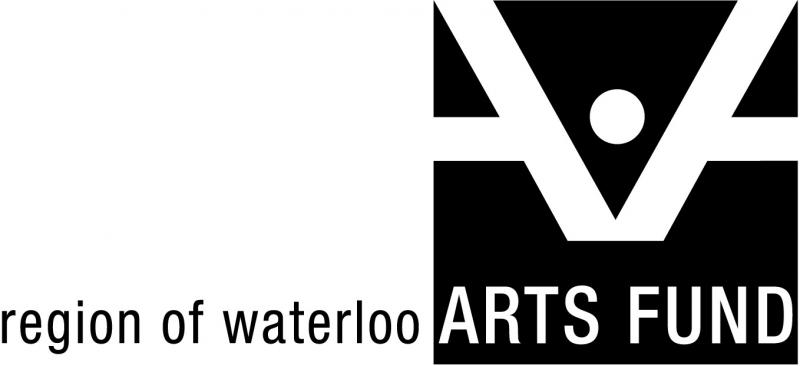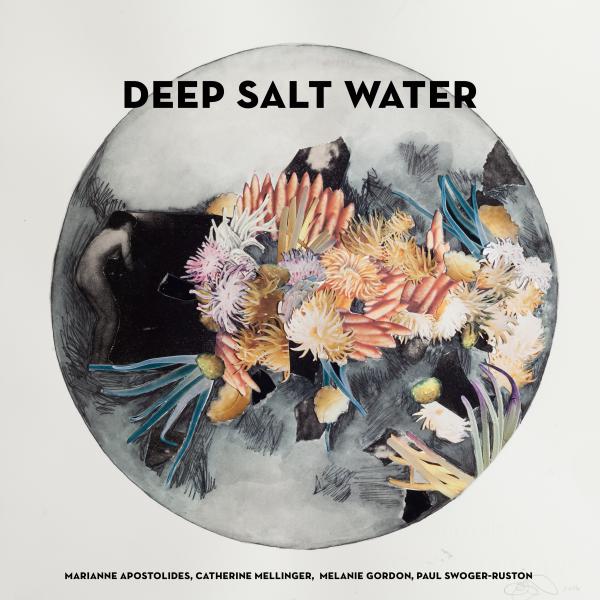Room is pleased to feature the captivating and thought-provoking Deep Salt Water, an interdisciplinary collaboration between four artists—author Marianne Apostolides, collage artist Catherine Mellinger, photographer Melanie Gordon, and composer Paul Swoger-Ruston—based on the forthcoming book by Apostolides of the same title.

Deep Salt Water is an intimate memoir about abortion, expressed through the language and imagery of the ocean. Gravitating around a central love story—the reconnection of a couple who’d had an abortion twenty years earlier—Deep Salt Water draws its readers into universal themes of loss, time, and creation.
To hear this month’s text read aloud by Apostolides, embedded in a larger sonic landscape by Swoger-Ruston, scroll to the bottom of the page.
Deep Salt Water: Month One
“Mama?”
“Yes, sweetie.”
“Why is there seaweed on your body?”
“Because I’m a woman.”
“Then I’m not a woman.”
“Not yet,” I say. But you will be, my love… “Now open wide.”
I place a grain of sand in her mouth, tucked deep beneath her tongue.
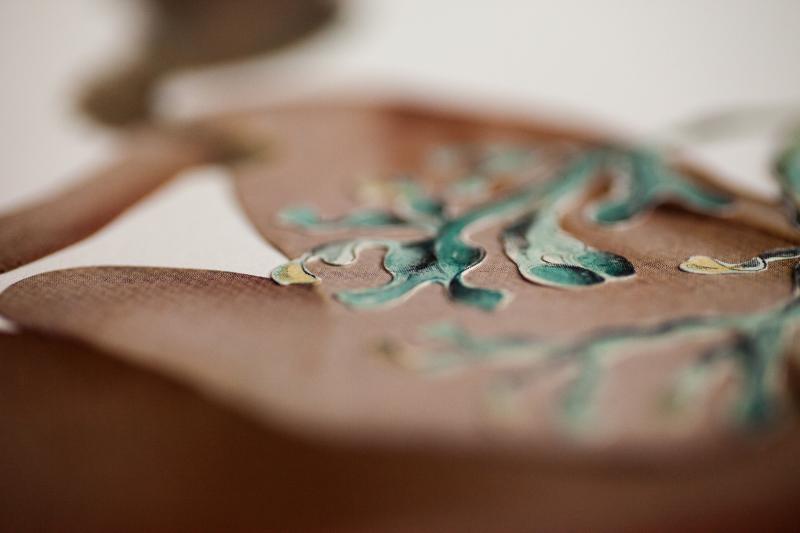
I was twenty-three when my pearl was formed. He hadn’t yet kissed me; I already knew. I’m stubborn and willful. My mother repeatedly called me a “misery.” She wasn’t wrong: I was never meant to be a child.
“Next slide, please.”
He was giving a keynote. I sat at the back of the conference room. The slide dropped down: projected, bright, he described his findings. I watched his hands; I set my sights. When I awoke in the hotel bed, the jewel was luminous in my mouth.
“Next slide.”
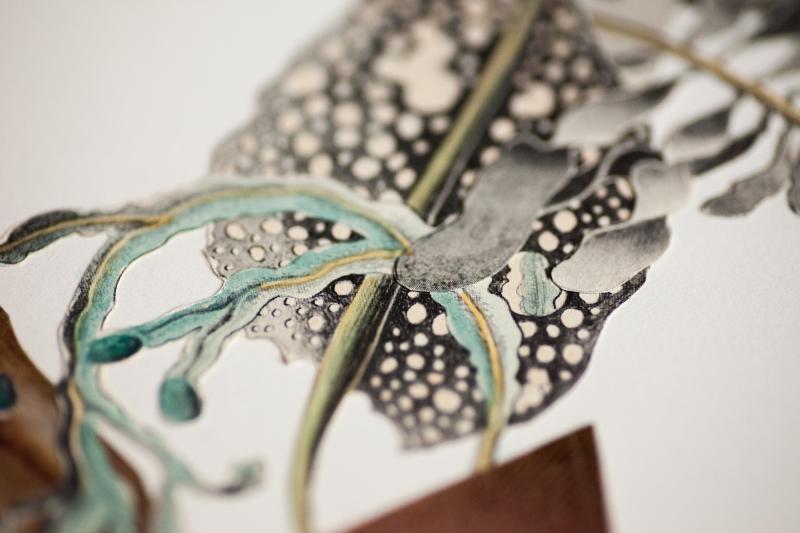
I learned from experience: Blythe would get her grain of sand from my clean fingers. This is the duty of the mother. My mom didn’t realize; she never put the sand in my mouth. I discovered, by accident. Women were frolicking in the waves. The Greek wore swim trunks the colour of cherries; his mass of hair was matted and wet. It’s the scent of the ocean. “He’s catching fish with his hands,” my mom said. In the rocks, in the shallows, where water is warm. He bent forward, ass high, both his hands submerged. “It doesn’t need to be deep,” he said. He winked, as if he’d caught me, looking.
“Next slide.”
The man sold marble from quarries in Greece. He’d shown us samples, which we all touched. I liked the one with emerald green, with veins of black. He saw me, fondling. He wouldn’t tell a soul, he said. Finger to his lips; fingers to my lips. The shower was running. My swimsuit was clammy; it rolled like a tube down my thighs in the water. The man was watching: smiles like cherries. My mother had warned me about the ocean, but he was family. We didn’t suspect it. The marble was smooth, with a sheen like liquid. “Rub it,” he said. He was panting now. He’d caught a fish. I heard the thrash. It’s frantic, with the long-fat muscle in his palm. That night, I found a grain of sand in the folds of my body. I took it, furtive, to my tongue.
“Next slide, please.”
This is the power of undertow: not blithe on the shore, with lotion, bikinis; with dry sand and music. That’s not denial. That’s ignorance, childhood: sun without blisters. But my will is monstrous. I see an octopus moving in water. The bulb of its head is the frightening part. We can feel it approaching: the suckers and tentacles, massive brain. It’s jetting forward. I understand fear.
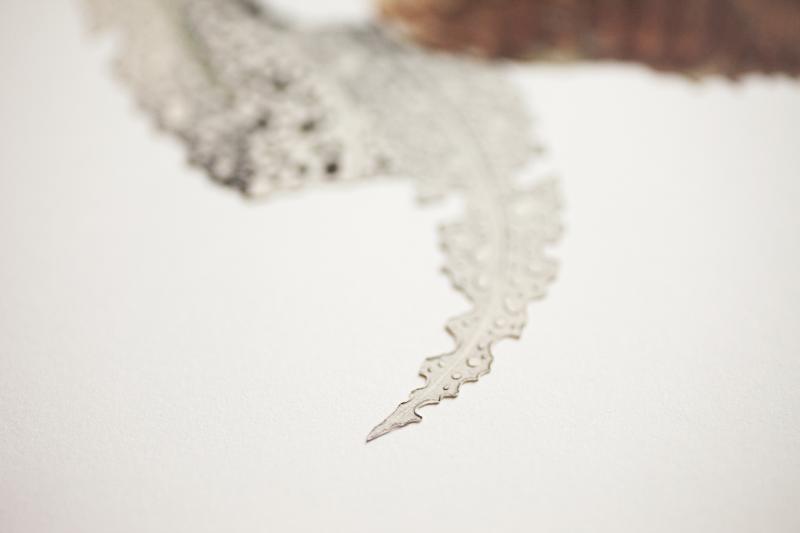
Slide like lava, warm and thickly: undertow.
Three-quarters of all species will be dead.
Her lifetime is ended, a curious thing.
With my head on his chest, I’ll convince myself that the worst is over.
Next slide, “please”: the octopus is moving faster.
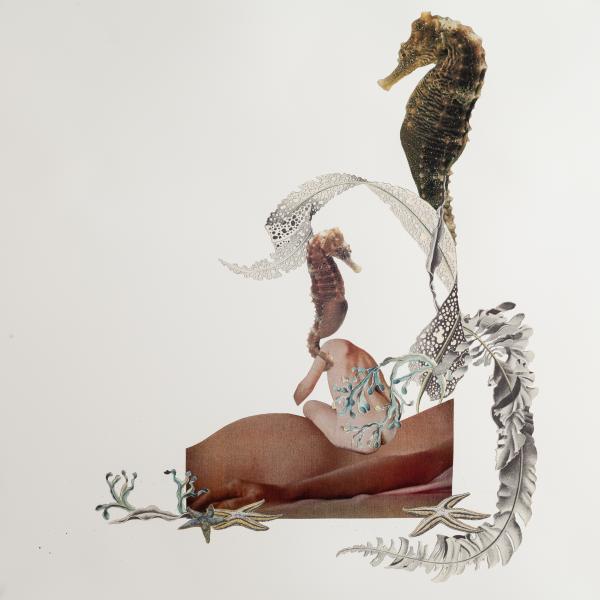
Click here to listen to Swoger-Ruston’s ethereal soundscape, featuring Apostolides’ reading of Deep Salt Water: Month One.
To read Deep Salt Water: Month Two click here.
Acknowledgements
Deep Salt Water by Marianne Apostolides will be published by BookThug in April 2017, but you can pre-order your copy, which will be shipped to you before the book is launched.
This month’s images are from Seaweed, a mixed-media collage by Catherine Mellinger, macro-photographed by Melanie Gordon.
We’d like to acknowledge the financial support of the Ontario Arts Council, which funded Marianne Apostolides in the writing of her text, and the Waterloo Regional Arts Fund, which funded Catherine Mellinger in the creation of her collages.

